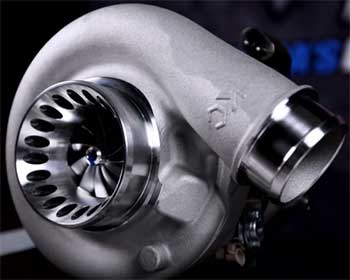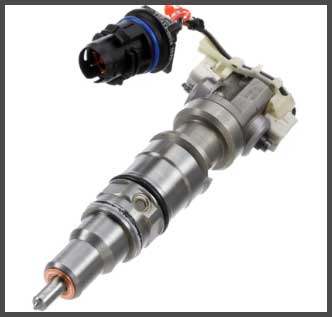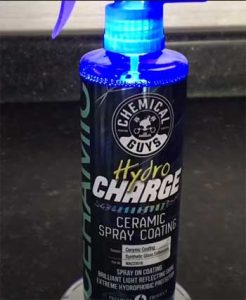When it comes to upgrading your diesel truck, one of the most popular modifications is replacing the stock turbocharger with an aftermarket option.
KC Turbos has made a name for itself in the diesel performance world with its Stage 1 and Stage 2 turbochargers. But how do these turbos perform when paired with stock injectors?
In this comprehensive review, we’ll break down the differences between KC Turbo Stage 1 and stock injectors, and how they can impact your truck’s overall performance. Let’s dive right in!
A Brief Comparison Table
| Feature/Performance | KC Turbo Stage 1 with Stock Injectors | Stock Turbo with Stock Injectors |
| Horsepower | Moderate increase (varies by engine) | Factory horsepower |
| Torque | Moderate increase (varies by engine) | Factory torque |
| Boost Pressure | Slight increase (5-10 PSI) | Factory boost pressure |
| Fuel Efficiency | Improved efficiency | Factory efficiency |
| Towing Capacity | Enhanced towing capacity | Factory towing capacity |
| Throttle Response | Improved response | Factory response |
| Reliability | High-quality materials, reliable | Reliable under factory conditions |
| Price | Higher initial investment | No additional cost |
The Basics: What Are KC Turbo Stage 1 and Stock Injectors?

Before we get into the nitty-gritty, it’s important to understand what we’re comparing.
KC Turbo Stage 1 is an aftermarket turbocharger designed to increase airflow, power, and efficiency in your diesel engine.
It’s a popular choice among truck enthusiasts who want to enhance their vehicle’s performance without breaking the bank.
Stock injectors, on the other hand, are the factory-installed fuel injectors that come with your truck when you buy it.
They’re designed to deliver the right amount of fuel to your engine under normal driving conditions, but they may not be up to the task when you start making performance upgrades.
Also Read: Are Snake Eater Injectors Worth It?
Performance: How Do KC Turbo Stage 1 and Stock Injectors Compare?
Now that we know what we’re dealing with, let’s take a look at how these two components compare in terms of performance.
- KC Turbo Stage 1 with Stock Injectors

When you pair a KC Turbo Stage 1 with stock injectors, you’ll likely see an increase in power and torque.
The improved airflow from the Stage 1 turbo helps your engine burn fuel more efficiently, resulting in more horsepower and torque across the powerband.
However, the stock injectors might limit the full potential of the upgraded turbo.
- Stock Turbo with Stock Injectors
A stock turbo paired with stock injectors will deliver decent performance for everyday driving, but you’ll be missing out on the potential gains that an aftermarket turbo can provide.
The stock turbo and injectors are designed for efficiency and emissions control, not for pushing the limits of your engine’s performance.
The Benefits of Upgrading to KC Turbo Stage 1
Now that we’ve compared the performance of KC Turbo Stage 1 with stock injectors to a stock turbo with stock injectors, let’s examine the benefits of making the upgrade.
- Increased Power and Torque: As we’ve mentioned, the KC Turbo Stage 1 will provide an immediate boost in power and torque when paired with stock injectors. This means better acceleration, towing capacity, and overall performance.
- Improved Efficiency: The improved airflow from a Stage 1 turbo can help your engine burn fuel more efficiently, leading to better fuel economy and reduced emissions.
- Enhanced Durability: KC Turbos are built with high-quality materials and precision engineering, ensuring they can handle the increased performance demands of your engine without compromising reliability.
Also Read: Is Fuel Injector Clinic Worth It?
Frequently Asked Questions (FAQ)
While it’s technically possible to run a KC Stage 2 turbo with stock injectors, you won’t be able to fully unlock the potential of the upgraded turbo. Upgrading your injectors to larger, high-performance models will help you maximize the power and efficiency gains from your Stage 2 turbo.
A KC Stage 2 Turbo is designed to provide significant boost pressure increases compared to a stock turbo. While the exact amount of boost will vary depending on your engine and modifications, you can generally expect to see a boost increase of 5-10 PSI when upgrading to a KC Stage 2 Turbo.
The horsepower gains from a KC Stage 2 Turbo will depend on your specific engine, supporting modifications, and tuning. However, it’s not uncommon to see horsepower increases of 50-100 HP when upgrading to a Stage 2 turbo and pairing it with appropriate injectors and tuning.
The 7.3 Powerstroke engine comes with a Garrett GTP38 turbocharger from the factory. This stock turbo is capable of providing decent performance for daily driving, but upgrading to an aftermarket option like a KC Turbo Stage 1 or Stage 2 can provide significant improvements in power, torque, and efficiency.
Conclusion
In conclusion, upgrading your diesel truck with a KC Turbo Stage 1 is a worthwhile investment for those looking to improve their vehicle’s performance without breaking the bank.
While you’ll see noticeable gains when paired with stock injectors, upgrading your injectors as well can further enhance the benefits of your Stage 1 turbo.
We hope this comprehensive review has helped you make an informed decision about whether a KC Turbo Stage 1 is the right choice for your truck.



